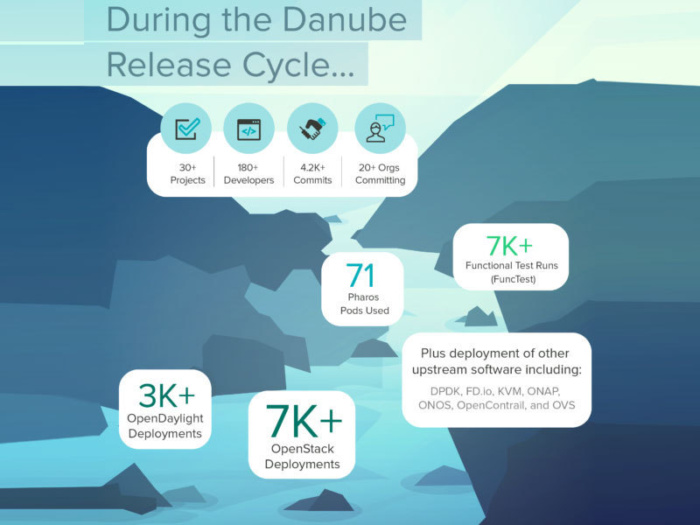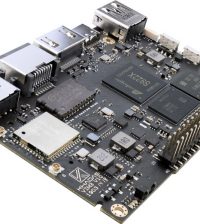- How to Adjust X and Y Axis Scale in Arduino Serial Plotter (No Extra Software Needed)Posted 7 months ago
- Elettronici Entusiasti: Inspiring Makers at Maker Faire Rome 2024Posted 7 months ago
- makeITcircular 2024 content launched – Part of Maker Faire Rome 2024Posted 9 months ago
- Application For Maker Faire Rome 2024: Deadline June 20thPosted 11 months ago
- Building a 3D Digital Clock with ArduinoPosted 1 year ago
- Creating a controller for Minecraft with realistic body movements using ArduinoPosted 1 year ago
- Snowflake with ArduinoPosted 1 year ago
- Holographic Christmas TreePosted 1 year ago
- Segstick: Build Your Own Self-Balancing Vehicle in Just 2 Days with ArduinoPosted 1 year ago
- ZSWatch: An Open-Source Smartwatch Project Based on the Zephyr Operating SystemPosted 1 year ago
OPNFV Danube: new release and new features for this NFV open source platform

The OPNFV project this week released the fourth version of its open source platform, known as Danube.
It promises to help large organizations and service providers get a better handle on virtualization, SDN and cloud services, by harnessing work with upstream communities into an open, iterative testing and deployment domain.
The last Danube version includes the following features:
- Full integration with OpenStack Gluon, a Model-Driven, Extensible Framework for NFV Networking Service.
- Support and introduction of capabilities for MANO (Management and Orchestration) in the form of integration between NFV Infrastructure/Virtual Infrastructure Manager (NFVI/VIM) with Open-Orchestration (Open-O) platform (now ONAP; Open Networking Automation Platform).
- The creation of Lab-as-a-Service to enable dynamic provisioning of lab resources, the introduction of stress testing into the OPNFV test suite, and a Common Dashboard that provides a consistent view of the testing ecosystem.
- Improved NFV performance including acceleration of the data plane via FD.io integration for all Layer 2 and Layer 3 forwarding (FastDataStacks project), and continued enhancements to OVS-DPDK and KVM.
- Full set of performance test project activities.
- Feature enrichment and hardening in core NFVI/VIM features such as IPv6, Service Function Chaining (SFC), L2 and L3 Virtual Private Network (VPN), fault management and analysis, and a continued commitment to support multiple hardware architectures, as well as traditional hardware OEMs, whitebox, and open source hardware through collaboration with the Open Compute Project.















